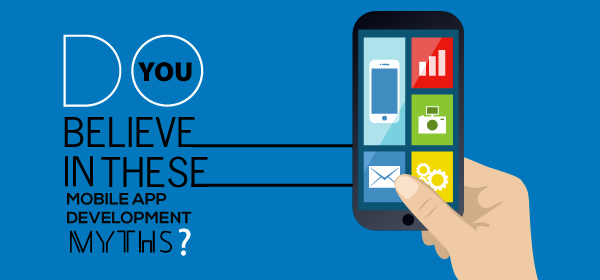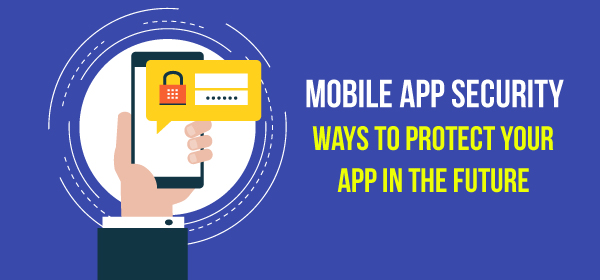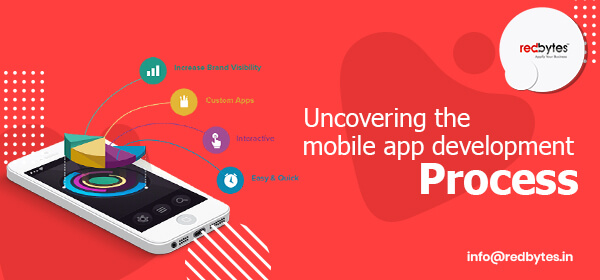For a business to grow successfully, proper learning and training is necessary for all the employees on the business strategies is the key. Also keeping them updated on the advanced technologies is important to compete well with other businesses. So it is not surprising that the elearning apps are slowly becoming an integral part of today’s business.
The user friendliness, the easy accessibility, and flexibility in proper coordination are making the use of elearning apps in business so relevant.
Here are a few among the best elearning apps you can try for your business this New Year to keep up the pace of the success rate.
| Stepik | Quantic Business Courses | edX |
| Cursa | Marketing Plan Tutorials | LinkedIn Learning |
| Entrepreneur Business | LearnVern | Pluralsight |
| TubeStudy | Coursera | Udemy for Business |
| eSkillIndia | Moodle | Lynda |
1. Stepik

Stepik provides you with the platform which gives you the free online courses ranging from computer science, languages like python to everything related to tech. Stepik has redefined the way of education by enabling the learning enthusiast to get his hands on, on his desired topic with just a touch of a button.
With Stepik mobile app you can now learn from anywhere and anytime. It makes sure that you are aligned with the ongoing video lectures and lets you access the assignments too.
App Features
- It lets you download the lectures for your studies even in the offline mode.
- You can import the deadlines on the calendar to make sure that you don’t miss meeting it.
- It lets you engage with fellow students in the comments section so that your queries are answered in minutes.
- It also lets you earn the certificate which you can flaunt on your professional network like LinkedIn.
- You can adjust the speed of the video according to your learning speed.
Rating: 4.8/5
Downloads: 1,000,000+
2. Quantic Business Courses

Quantic is very proud to tell that, we are the mobile-first business school that offers the online MBA and also the radical Executive MBA, which students can choose as an alternative to the elite campus programs.
It offers fast, focused, and comprehensive business degrees which will boost your career. Quantic is a perfect choice for someone who wants to switch the career or wants to get ahead in the career.
App Features
- You can get a variety of courses from Digital Marketing to Venture Capital Funding.
- It is aligned with the world’s leading business schools.
- It provides you with the sample free introductory lessons.
- It provides some amazing animation which makes the learning process even easier.
- It provides a free online MBA.
Rating: 4.8/5
Downloads: 100,000+
3. edX

edX is one of the most trusted elearning apps for business. edX has already been a favorite choice for over 20 million learning enthusiasts. Upgrading new skills and enhancing your career has been made easier now with the edX learning platform, you can now get certification in your desired stream and boost your career.
The courses offered by edX are over 2000, which includes web development, data science, business management and etc.
App Features
- It conducts exams to test your knowledge after completing every course.
- It includes courses for high school students as well as working professionals.
- Experts teaching the course are the experts from the world’s top universities.
- It gives you the provision to try the course for free.
Rating: 4.6/5
Downloads: 5,000,000+
4. Cursa

Learning by watching the videos makes the process easier and smooth, Cursa learning is undoubtedly one of the most sophisticated elearning apps for business to study a variety of subjects. Get certification after successfully completing each course and enhance your career.
Cursa also gives you the option to save the videos of your desired classes and lets you watch them whenever you want.
App Features
- You can sign up for free in Cursa.
- You can easily switch to the night view mode.
- The courses ranging from Health, Management studies and etc.
- It also offers text courses for the ones who like reading the notes.
- It has the bookmark feature in the text course to ensure your resume to the same page.
Rating: 4.6/5
Downloads: 1,000,000+
5. Advertising & Marketing Plan Tutorials & Strategy

If you are a marketing enthusiast who is still starting the career or have enough experience and want to upgrade yourself, Advertising & Marketing Plan Tutorials & Strategy is the one-stop solution for you. Learning marketing is now made easier by just watching the videos.
The courses range from Search Engine Marketing, Search Engine Optimization, Paid advertising, etc. You can now start your online business by just watching the videos and following the notes.
App Features
- The app focuses on both offline and online marketing.
- The explanation given in the app is simple and easily understandable.
- The video quality of the app is engaging enough to hold the viewers on screen.
- It gives a good explanation of the fundamentals of marketing and advertising.
Rating: 4.6/5
Downloads: 100,000+
Read Also : 20 Best Apps For Teachers & Educators 2023
6. LinkedIn Learning

There is no doubt that LinkedIn is one of the most trusted and sophisticated professional elearning apps for business present in current times. LinkedIn lets you grow your skills which keeps you ahead of your competition.
It provides you over 16000+ courses all of which belong to a high standard and quality content. LinkedIn’s unique feature of providing bit size crisp video courses is something that makes it unique from its competition.
App Features
- It gives you a personalized course recommendation.
- It lets you save courses and watch them later.
- It provides you certificates which you can share on LinkedIn.
- It gives you access to a premium LinkedIn feature.
- You can now download the courses and watch them later.
Rating: 4.5/5
Downloads: 5,000,000+
7. Entrepreneur Business Ideas

Learning online is the new normal and Entrepreneur Business Ideas learning app is doing its best to produce more entrepreneurs by giving them the right guidance. This app contains articles that give you insights on how to begin planning any business.
This app consists of 20,000 business plans which will for sure encourage entrepreneurs to pick up any idea and make it big by taking the guidance from the app.
App Features
- It gives you the articles of new business ideas.
- It has an inbuilt tool that helps you create a small business plan.
- You can always get in touch with the experienced entrepreneurs for guidance through our app.
- It also tells you the best business idea amongst the plethora.
Rating: 4.5/5
Downloads: 500,000+
Download: Android
8. LearnVern – Learn Free Full Courses + Certificate

LearnVern provides you 100 percent free tutorials that are taught in Hindi. Once you complete the course it also lets you get connected with the employers as well. The courses range from computer languages to subjects of mechanical and civil.
It has been trusted by millions of students across India and Bangladesh. This app has different courses for freshers as well as experienced professionals.
App Features
- It lets you connect with employers and help you land your dream job.
- Upon finishing the course you will be awarded the certificate.
- It is absolutely free of cost.
- The app is super easy to navigate even for the rookies.
Rating: 4.5/5
Downloads: 100,000+
Download: Android
9. Pluralsight

Learning technology skills are redefined with the Pluralsight E-Learning app. Find online video courses from software development, cloud computing, cybersecurity, IT Ops, data analysis, AI and machine learning, and many more, around 7000+ in total.
Pluralsight also lets you download the contents, and certification prep too. And you can also bookmark courses of choice and it will be automatically sync in all devices.
App Features
- It has organized content that lets you learn without the hassle and reach your goals faster.
- You can tune in to most demanded conferences like Microsoft Insight.
- It lets you do the learning check to ensure your learning goals are met.
- It has simple and easy to use user interface.
Rating: 4.4/5
Downloads: 1,000,000+
10. TubeStudy

Learning is now fun with TableStudy, you now get access to thousands of videos on your favorite courses which are taught by the professionals who are best in the industry. What’s more amazing about this app is, it is absolutely free!
You can find courses ranging from different types of programming languages, cooking, drawing and etc.
App Features
- This app also provides learning different languages like French, German and etc.
- It is absolutely free of cost.
- They publish the updates on google play regularly.
- It has a simple and easy to use interface.
Rating: 4.4/5
Downloads: 500,000+
Download: Android
11. Coursera

You can now learn your favorite subjects and take desired courses from anywhere and anytime on Coursera. It gives you more than 2000 courses and the specialization is developed by some of the best colleges and universities in the world.
You can now boost up your career by taking a course in this app and earning a certificate.
App Features
- The courses include different programming languages, Art, design, etc.
- You can join Coursera, free of cost.
- The specializations of the courses are developed by over 140+ best colleges.
- It lets you download the video and watch it in the offline mode.
Rating: 4.3/5
Downloads: 10,000,000+
12. Udemy for Business

Udemy for Business helps you learn top-rated content courses in your desired stream anytime from anywhere. Udemy makes sure that you are equipped with the fresh and the best content to keep you ahead in the race.
The courses have been taught by the most experienced professionals, industry leaders from across the globe.
App Features
- It lets you choose your own pace by giving different speed options.
- You can interact with lecturers through live Q & A.
- You can download the lesson and watch it offline.
- It gives you the fresh content of that particular industry.
Rating: 4.2/5
Downloads: 500,000+
13. eSkillIndia

Skilling and upskilling yourself is now easy with eSkillIndia learning app. It is an initiative by the National Skill Development Corporation (NSDC). You can find a plethora of courses in various industries in this app.
eSkillIndia gives you the catalog of the complete courses offered by them. The courses range from Management to Electronics and etc.
App Features
- You can access the courses in English, Hindi, and different regional languages.
- You can adjust the speed of the courses at your convenience.
- It just takes 1 minute for the registration process.
- It has both free as well as paid courses.
- It has a very friendly navigation app and simple to use interface.
Rating: 3.9/5
Downloads: 100,000+
Download: Android
14. Moodle

Leaning online has become a new trend and most of all the need for an hour. Moodle makes the process of online education easier, simpler, and at the same time impactful as well. You can now access a variety of courses with just a tap of a button.
Since the official mode app only works with the Moodle sites, making sure it has been correctly configured is necessary.
App Features
- It gives you the notification of the events.
- It lets you upload the images, videos and etc. from your mobile.
- It lets you access the courses even in the offline mode.
- It lets you view your course grades.
Rating: 3.6/5
Downloads: 10,000,000+
15. Lynda

You can now access the plethora of wonderful online courses from Lynda which gives you the best content from across the world. The most exciting part is that it is now LinkedIn Learning.
It lets you learn the skills which are on-demand so that you can be ahead of the race in the industry. The courses have been taught by expert faculty.
App Features
- It gives you the personalized course recommendation.
- You can download the course and watch it offline.
- The video tutorials include captions to make learning even easier.
- You can create your own training plan.
Rating: 3.5/5
Downloads: 1,000,000+
Read Also : 15 Best Elearning Apps For Kids 2023
Closing Thoughts
Giving a tough fight to the competitors is the key to stand up high in your business and improve the reach of your product to a large user base. Well trained employees who are comprehensively coordinated to handle the business become really important to register your business in this competitive market.
The elearning apps for business are truly a handy option and an inexpensive alternative to heavily charged training programs by experts. With such amazing apps, all what the officials have to do is to introduce the app to the team and may be set up an account.
However, the way you use these elearning apps to train your employees is really important and it depends on the type of business you handle.
Also Check : Latest Updated Educational Apps Directory List




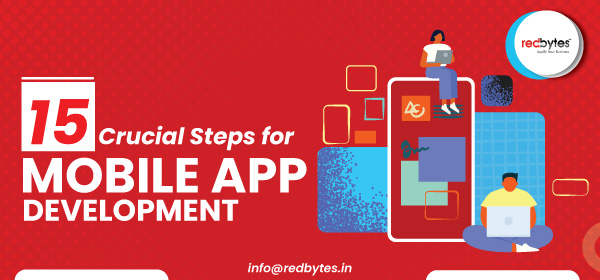



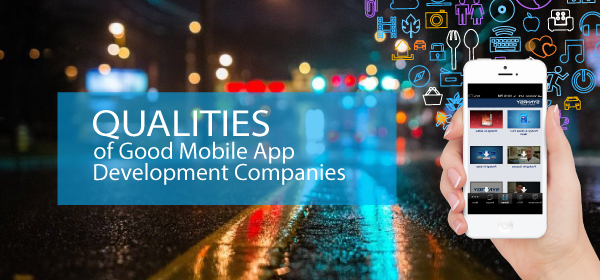


![10 Best App Creation Tools [Infographics]](https://wp.redbytes.in/wp-content/uploads/2017/05/10-Best-App-Creation-Tools-1.jpg)


